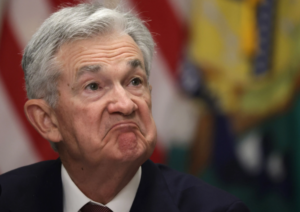$EWS $FXSG $SGD
#Singapore #Inflation #Election #Economy #MonetaryPolicy #CoreInflation #HeadlineInflation #FinancialMarkets #AsiaEconomicTrends #CentralBank #InterestRates #MarketSentiment
Singapore’s economic landscape holds steady as the city-state records inflation rates at four-year lows, signaling a period of relative price stability despite the global economic fluctuations. The headline inflation rate maintained its ground from the previous month at 0.9%, a figure that mirrors the restrained consumer price increases within the country. Simultaneously, core inflation, an indicator that strips out the more volatile components of food and energy to provide a clearer measure of long-term price movements, saw a modest retreat to 0.5% from 0.6%. This nuanced deceleration in core inflation suggests a softening in the underlying price pressure within the Singaporean economy, painting a complex picture of its inflationary landscape on the eve of an anticipated election.
These metrics are more than mere statistics; they are indicators of the Monetary Authority of Singapore (MAS)’s success in maneuvering through economic uncertainties to maintain price stability—an essential element for household and business financial planning. The MAS, Singapore’s central bank, operates a unique monetary policy framework centered around managing the exchange rate of the Singapore dollar rather than setting interest rates. This approach has allowed it to respond flexibly to global financial currents, tempering inflationary pressures derived from external sources while supporting the nation’s export-driven economy.
The steadfastness of Singapore’s inflation rates amidst a complicated global economic environment speaks volumes about the resilience of its monetary policy and the overall health of its economy. This stability comes at a pivotal moment as the city-state gears up for an upcoming election. The economic indicators will likely play a crucial role in the political discourse, as candidates may leverage these numbers to draft and argue their economic visions for Singapore. Stable inflation rates coupled with coherent monetary policies may bolster investor and consumer confidence, supporting the argument that the current policies are effectively managing the economic challenges faced by the country.
Looking ahead, the trajectory of Singapore’s inflation and its economic policies will be closely watched by investors and policymakers around the globe. As the city-state navigates its pre-election period, the maintenance of low inflation rates will be critical in the crafting of future monetary and fiscal policies. Moreover, the broader implications for Southeast Asian markets cannot be overlooked, as Singapore’s economic performance often serves as a bellwether for the region. Ensuring that core and headline inflation remain in check will be vital for sustaining the country’s economic attractiveness, fostering a stable environment for both local and international businesses amidst the uncertainties of global trade and finance dynamics.







Comments are closed.